Unfortunately, many individuals make transfers of assets that end up disqualifying them from Medicaid for a significant length of time.
It is important for your estate planner to be fully familiar with the frequently changing Medicaid laws, rules and regulations in order for you to receive proper guidance and advice. For example, a sick spouse can transfer all of his or her assets to the “well” or “community” spouse and qualify the very next month for nursing home Medicaid (provided there had been no other disqualifying transfers during the 5 year [“look back”] period prior to the date when you wish Medicaid to start covering). This is considered an “exempt” transfer for Medicaid purposes. Had an uninformed sick spouse made a non-exempt transfer, say, to a brother, a parent, a friend, a child, or perhaps a trust, the sick spouse in need of immediate Medicaid coverage would be disqualified for a certain length of time, meaning private funds would be needed to pay the nursing home during the period of disqualification. Therefore, to maximize your savings and ensure optimal results, it is imperative you meet with and, if appropriate, file a Medicaid application with an experienced professional, such as Jack Lippmann of Elder Care Services, Inc.
Individuals having more than the allowed resources, in 2023 $28,133, are instructed to spenddown their resources before they can apply for Medicaid medical assistance. Although it’s an option one can choose, however, it may not be the best option for the individual to choose.
Lets compare the two options a little closer. Suppose this individual had $250,000 and decided to spenddown before he/she applied for Medicaid. Once on Medicaid this individual is deprived of the luxuries they could have had had they protected their assets. The plus in choosing option two, protecting all or some of the assets, depending on the Medicaid application they were applying for, the individual has many opportunities to profit from this choice. It allows them to afford many things, such as, being able to hire a companion, or purchase items which Medicaid does not pay for, a cell phone, television, cloths, etc.
We at Elder Care Services, Inc., assists clients living in New York City, Nassau County, Suffolk County, and Westchester County, to achieve Medicaid eligibility, protect their income, resources, and homes, and receive the services they require and deserve.

